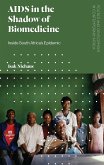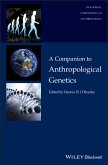In 'Darwinism and Race Progress' by John Berry Haycraft, the author dives into the controversial topic of Darwinism and its impact on race. Haycraft explores the implications of natural selection theory on social progress and racial hierarchies. Written in a scholarly and analytical style, the book delves into the historical context of Darwinism and its influence on scientific thought. Haycraft examines the relationship between scientific theories and societal beliefs, shedding light on the complex intersections of biology and ideology. Drawing from a wide range of sources, the book provides a comprehensive overview of the debates surrounding race and evolution. With a critical eye, Haycraft challenges readers to reconsider their understanding of race and progress. John Berry Haycraft, a renowned biologist and sociologist, brings his expertise to 'Darwinism and Race Progress'. As a scholar with a background in both science and social theory, Haycraft is uniquely positioned to unravel the complexities of Darwinian thought. His interdisciplinary approach offers readers a nuanced perspective on the intersection of science and race. Haycraft's meticulous research and insightful analysis make this book a vital contribution to the study of race relations and evolutionary theory. For readers interested in the intersection of science, race, and society, 'Darwinism and Race Progress' is a must-read. Haycraft's thorough examination of Darwinian principles and their implications for race challenges readers to confront their preconceived notions and engage critically with scientific discourse. This book will appeal to scholars, students, and anyone interested in the ongoing debates surrounding race, evolution, and progress.
Dieser Download kann aus rechtlichen Gründen nur mit Rechnungsadresse in A, B, BG, CY, CZ, D, DK, EW, E, FIN, F, GR, H, IRL, I, LT, L, LR, M, NL, PL, P, R, S, SLO, SK ausgeliefert werden.









